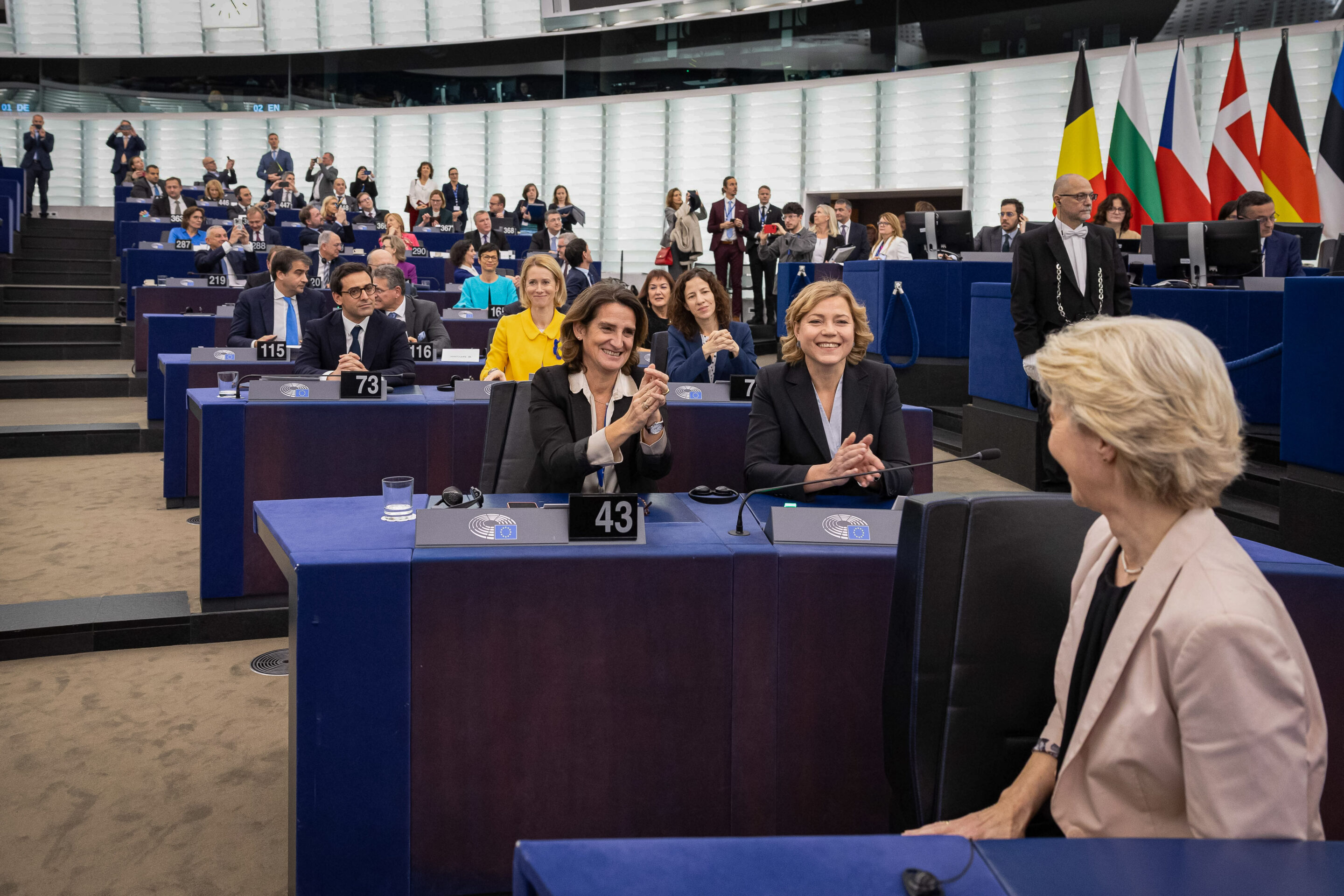Members of the European Parliament approved the new European Commission this week. As Ursula von der Leyen’s executive gets to work, here is what is up for grabs in the world of energy and climate.
It was a close-run thing for von der Leyen in the end: just 370 MEPs voted in favour of her new Commission, a record low in EU history. But majorities are all that matters at this stage, so her team starts work as of Monday.
Preserving, maintaining and hopefully improving Europe’s competitiveness in the global race to be top green economy will be front and centre of von der Leyen’s fresh mandate. Doing that while also fulfilling decarbonisation objectives will be the challenge of the century.
The job is made all the more difficult by the fact that one of the EU’s main partners – the United States – will be led by an administration that will not champion green technologies and trade during its four-year-long term.
Von der Leyen’s team takes charge amid inauspicious circumstances in that regard. Swedish battery maker Northvolt, which has been championed as the poster child for the EU’s homegrown industries, just declared bankruptcy.
Batteries are one of the crucial areas where the EU wants to compete with the likes of China and millions of euros in subsidies and incentives have been funnelled into the sector over the last few years.
Whether Northvolt’s failure will galvanise those efforts or put the brakes on them remains to be seen. Supply chain independence and so-called strategic autonomy are still concepts that enjoy a tremendous amount of political backing in Europe. Perhaps this is just part of the learning curve.
The new Commission will also have to be on guard to make sure that the domestic wind power industry does not go the same way as the solar sector, which has all but lost the global race to China.
One contest that is not yet decided but which is looking a little one-sided comes in the form of electric vehicles. Europe’s top carmakers have plans to build and sell EVs but their manoeuvring is not quite panning out as expected.
EV uptake is increasing but the pace of sales is not as high as many would have wished, leading to warnings from some firms that they will have to make job cuts or close manufacturing sites.
The EU has already made plenty of moves intended to smooth their bumpy ride, ranging from clear emission reduction targets for the sector to extra import duties on Chinese-made cars that have benefited from unfair subsidies.
But for some carmakers it is not enough. A small but loud portion of the industry want a 2035 zero emission target either postponed or cancelled altogether. That call has some backing from governments but the majority of EU countries want to preserve things as they currently stand.
Whether von der Leyen and her team decide to revise that target or grant carmakers more slack in the shorter term, as the 2025 round of emission targets hove into view, will be a question that needs answering rather quickly.
Looking at the wider picture, the EU will also have to think about its economy-wide emission targets. Under the UN-led climate process, an updated pollution benchmark for 2035 is due in February, so work will have to accelerate in order to get a new goal on the board in the first half of the year.
There is also the 2040 target to consider. Mid-century’s net-zero objective is already set in stone, as is 2030’s 55% cut, so a stepping stone between the two is needed. Work has already kicked off and will continue under von der Leyen’s watch.
Currently, the smart money is on a 90% cut for 2040 but the devil will be in the detail. To what extent that number would rely on net or absolute emission reductions will be important to watch, as will the role that carbon capture and removal will play.
Von der Leyen has a lot of political allies and supporters to keep happy during these five years, which will be no easy balancing act. The EU has legally-binding obligations, geopolitical worries and economic concerns to think about.
But if the Union can be on the right side of history when it comes to adopting green technologies and providing sustainable jobs, everyone can benefit.
Want more updates and analysis of what is happening in the world of energy and climate? Interested in finding a job in the sector or more information about public tenders? Sign up to our Energy Rundown newsletter here!

